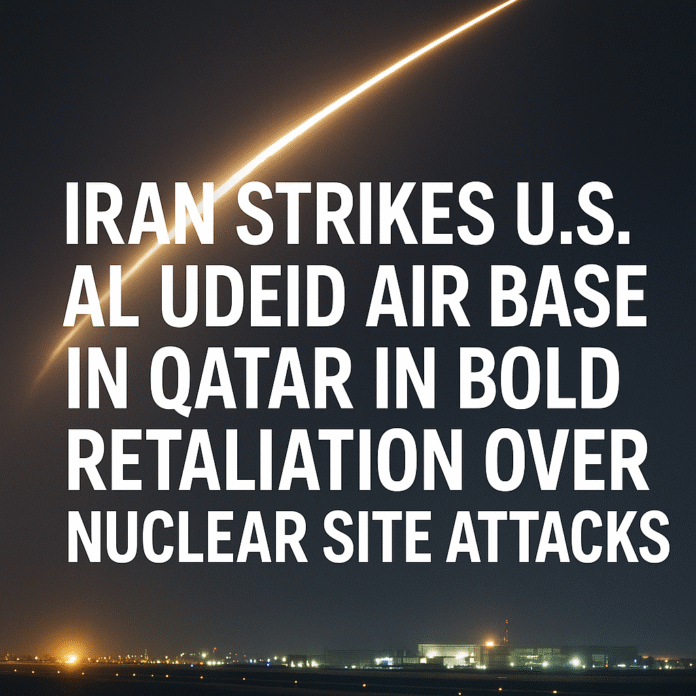In a stunning turn of events that could ignite a new phase of regional conflict, Iran launched a direct missile strike late Monday night on the U.S.-operated Al Udeid Air Base in Qatar — the largest American military installation in the Middle East.
According to U.S. Department of Defense sources, multiple short-range ballistic missiles were fired from Iranian territory, hitting unpopulated zones around the base. No casualties or critical infrastructure damage have been reported. Nonetheless, the strike is being interpreted as a deliberate and symbolic act of retaliation following recent U.S. airstrikes on Iranian nuclear development facilities.
Iran’s Islamic Revolutionary Guard Corps (IRGC) claimed responsibility, stating the attack was “a proportionate and precise response to American violations of our sovereignty and nuclear rights.”
This marks the first time in history that the Al Udeid base — a strategic hub for U.S. air and drone operations across the Middle East — has come under direct fire from a hostile nation-state.
A Calculated Escalation
Military analysts believe the strike was engineered for maximum political effect and minimum immediate destruction. The missiles avoided key assets such as aircraft hangars, command centers, and barracks — suggesting that Iran aimed to send a message rather than provoke all-out war.
“This is a red line moment,” said Dr. Reza Mahmud, a senior defense expert at the South Asia Strategic Forum. “Tehran is signaling that its retaliation capacity is real and targeted — but still restrained.”
The U.S. has placed its regional forces on high alert. However, President Biden has yet to announce any retaliatory action, indicating Washington may be pursuing a diplomatic response for now.
Trump Reacts, Oil Markets Shake
Former U.S. President Donald Trump, speaking at a rally in Iowa, downplayed the Iranian attack, calling it “weak” and “a face-saving move.” He added that the advance warning before the strike “shows Iran fears escalation.”
Meanwhile, global oil prices spiked sharply as fears of wider conflict rattled markets. Brent crude rose by over 3%, and shipping insurers hiked rates for vessels passing through the Strait of Hormuz.
Regional Fallout
Qatari officials have not yet released an official statement, but internal sources confirm that security around Al Udeid and other key sites has been heightened.
The international community is watching closely. NATO allies have called for restraint, while Russia and China have condemned the U.S. strikes on Iran’s nuclear facilities.
What Comes Next?
While Monday’s missile strike did not trigger immediate casualties, its message is clear: Iran is asserting its regional power — and its red lines. With both sides now posturing carefully but defiantly, the next move may determine whether this conflict simmers or explodes.


